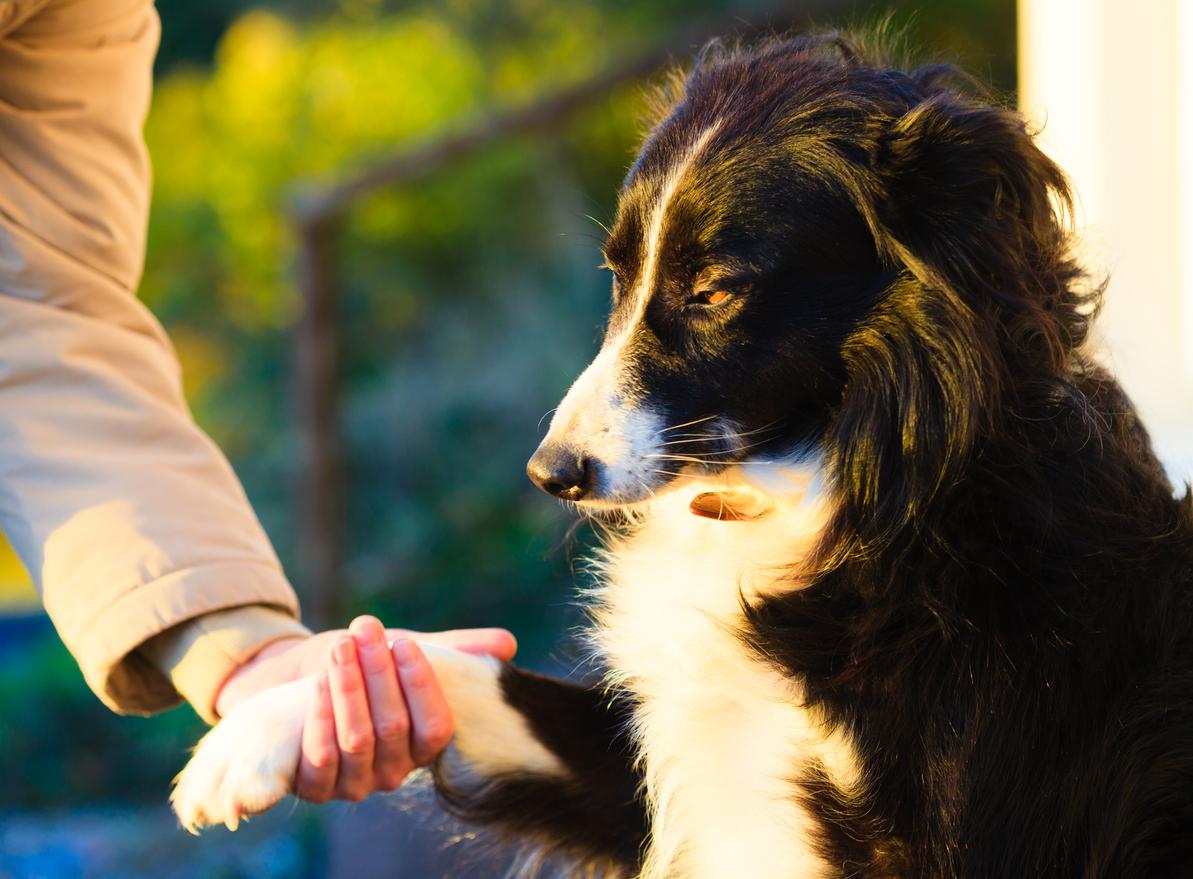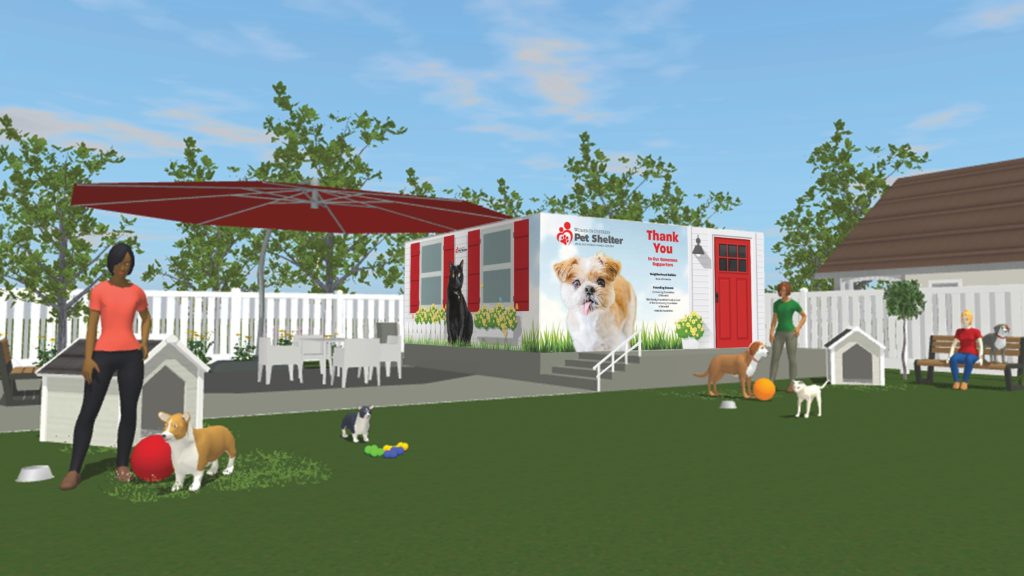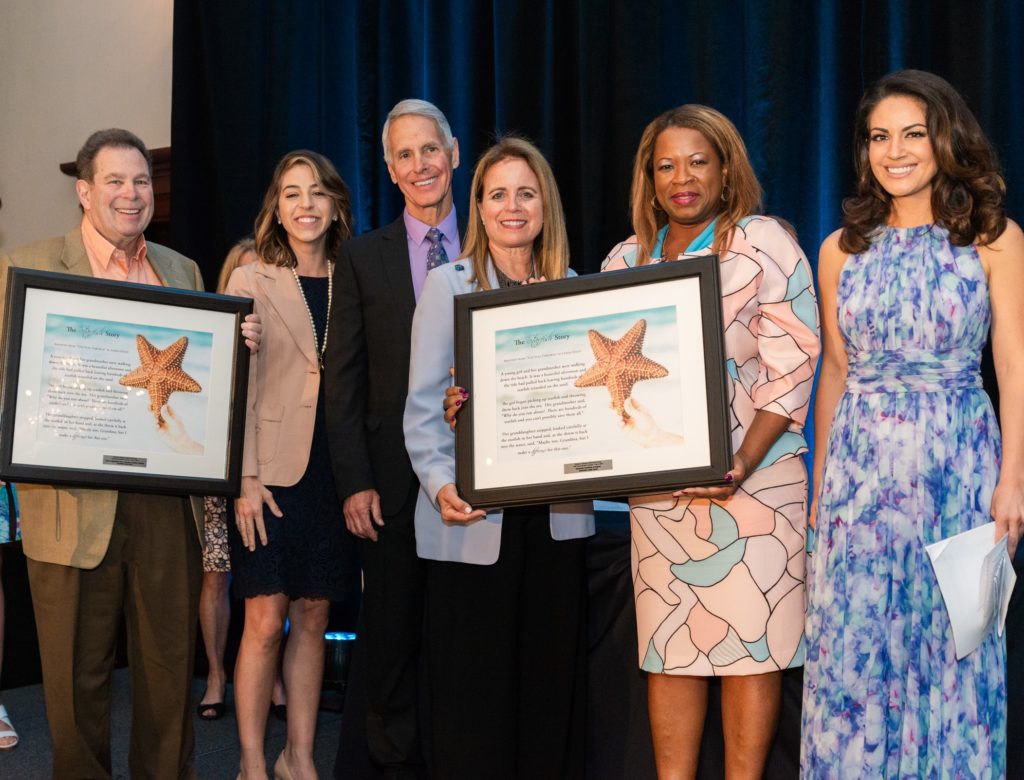
Supporting Victims of Domestic Abuse
Supporting Victims of Domestic Abuse
For victims of domestic violence, seeking help can mean abandoning beloved pets. A partnership between the Community Foundation of Broward and Women in Distress is bringing a pet-friendly shelter to South Florida that should be a model for communities nationwide.
The young mother turns around to take one long, last glance at what she was leaving behind, hopefully for good this time. Several heavy bags are thrown over each shoulder. Her eyes scan the four walls that had become her prison. She recalls the happy times they had in the beginning and the bright future she thought was ahead of them. Nobody could predict how things would change. She shudders as she recollects the horrific scenes that replayed night after night in that apartment. Her eyes well up with tears as the fresh bruises on her back begin to ache. The combination of self-pity and self-doubt is interrupted as her six-year-old shifts around in the foyer.
“Mommy, where are we going?” her daughter asks. “Somewhere safe,” the woman replies. And then, the dreaded question: “Mommy, what is going to happen to Buddy? Is he coming with us?” This time, the mother has no answer. She looks over at Buddy, the family Beagle, knowing she can’t leave him behind. But what are her options? The shelter doesn’t take pets. Should she drop him off at the pound? Try to live in their car to keep Buddy with them? Or—worst—stay and suffer the wrath until they can leave with Buddy in tow?
Unfortunately, this scenario is one that domestic violence shelter staff and caseworkers hear all too often. When our team at the Community Foundation of Broward learned how frequently stories like this play out in our own community, we knew we wanted to help find a solution. The Community Foundation has a long-standing partnership with our region’s most respected domestic violence center, Women in Distress of Broward County. Founded in 1974, Women in Distress (WID) is a nationally accredited, state certified, full service domestic violence shelter in Broward County, Florida. And WID was able to shine a light on the scope of this problem by sharing with us that:
- Only three percent of domestic violence shelters nationwide can accommodate pets, while two-thirds of all U.S. homes have pets.
- Fully 71 percent of pet-owning women entering women’s shelters reported that their batterer had threatened, injured, or killed family pets for revenge or to psychologically control them.
- Up to 65 percent of victims of domestic violence feel they are unable to escape their abusers out of fear about what will happen to their pets when they leave.
In short, for too many victims of violence, household pets are a barrier to leaving their abusive relationships—and current domestic violence shelters are unable to meet the need.
“Mommy, what's going to happen to Buddy?” she asks. This time, the mother has no answer.
Witnessing first-hand the consequences for domestic violence victims who remain in the home with their abuser, WID decided on an innovative solution: To build an onsite pet shelter to completely eliminate this barrier for victims seeking solace. The pet facility will be adjacent to WID’s existing campus, and pets are welcome as long as their owners are receiving services next door. Staff from the Humane Society of Broward County will provide the animals with daily care and medical treatment.

Plans for the pet shelter slated to open this summer in Broward County, Florida. Illustration courtesy of Women in Distress, Inc.
Of course, finding the financial support to create this innovation would take a lot of hard work, and that’s where our Foundation stepped in. Our staff quickly got to work evaluating and vetting the pet shelter project. We met with WID staff, and probed the building and construction timelines, projected costs and budget, anticipated outcomes and overall future impact.
We then went about assembling funding. It started with a pledge from longtime donors (we call them “fundholders”) Sandy and Kenny Tate, who wanted to support the project through the Tate Family Foundation Fund, a donor-advised fund of the Community Foundation of Broward. The project aligned with their fund’s mission statement that our team helped them craft—to improve the lives of children and families by ending the cycle of poverty, dependency and violence.
In our meetings with the Tates, what came across was their drive not only to support this project financially, but to inform, educate and inspire other philanthropists to join them. Toward that end, we helped them create a matching grant. Next, our charitable funds managers began approaching other donor-advised fundholders to support this transformational project and match challenge. Our team didn’t reach out indiscriminately. Instead, we were thoughtful and intentional about whom we approached. Based on the philanthropic values and passions we know about our fundholders, we narrowed down the list to a small group that share a love for animals, believe in women empowerment, support the end to domestic violence, or always work towards providing a hand-up.
Our targeted approach paid off. Four donor-advised fundholders met the Tate family’s challenge with a resounding ‘yes’, and enjoyed knowing their investment could be doubled due to the match. What was most exciting was how touched these individuals were that we thought of them for this project. One donor explained that he had supported WID for years and was not even aware of their new endeavor. And when they were honored in May for their participation in the pet shelter at Women in Distress’ annual Starfish Luncheon, all of the fundholders expressed their gratitude to the Community Foundation for how well we know them and understand their philanthropic values.
Through this collaboration, these donor-advised funds were able to create a greater impact. The Community Foundation’s team didn’t just help our fundholders build a pet shelter and save lives; we also helped these donors evolve as humanitarians and reach new heights in their philanthropy.
When the pet shelter at Women in Distress opens in June, it will be first of its kind in Florida and become a national model for other domestic violence shelters across the country. With a growing wait list, the impact will be almost instantaneous. WID anticipates between 80 and 100 families with pets will be served annually.

In May, Women in Distress recognized the Community Foundation of Broward for bringing the innovative project to life thanks to the following donor-advised funds: The Tate Family Foundation Fund; Kiwanis Club of Fort Lauderdale Charitable Fund; James K. Oppenheimer Fund; Evan Bell-Greenbaum Charitable Fund; Peter Cooper Charitable Foundation Fund. L-R: James Oppenheimer, Terra Sickler (Kiwanis Club of Fort Lauderdale), Kenny and Sandy Tate with Community Foundation Vice President of Grants and Initiatives Sheri Brown and CBS4 Miami’s Rudabeh Shahbazi.
As we know, the barriers facing domestic violence victims in Broward County mirror those in communities across the nation. It follows, naturally, that community foundations everywhere have the opportunity to work with donors and partners in creating innovative solutions to this critical challenge. In Broward, we’re proud that this excellent example of fundholders amplifying and leveraging their giving through collaboration with other donors is not only going to make an impact. It is quite likely going to save lives, animal and human alike.
Justine Morgan is a Charitable Funds Manager at the Community Foundation of Broward in Fort Lauderdale, Florida. Linda B. Carter is the foundation’s President and CEO.


